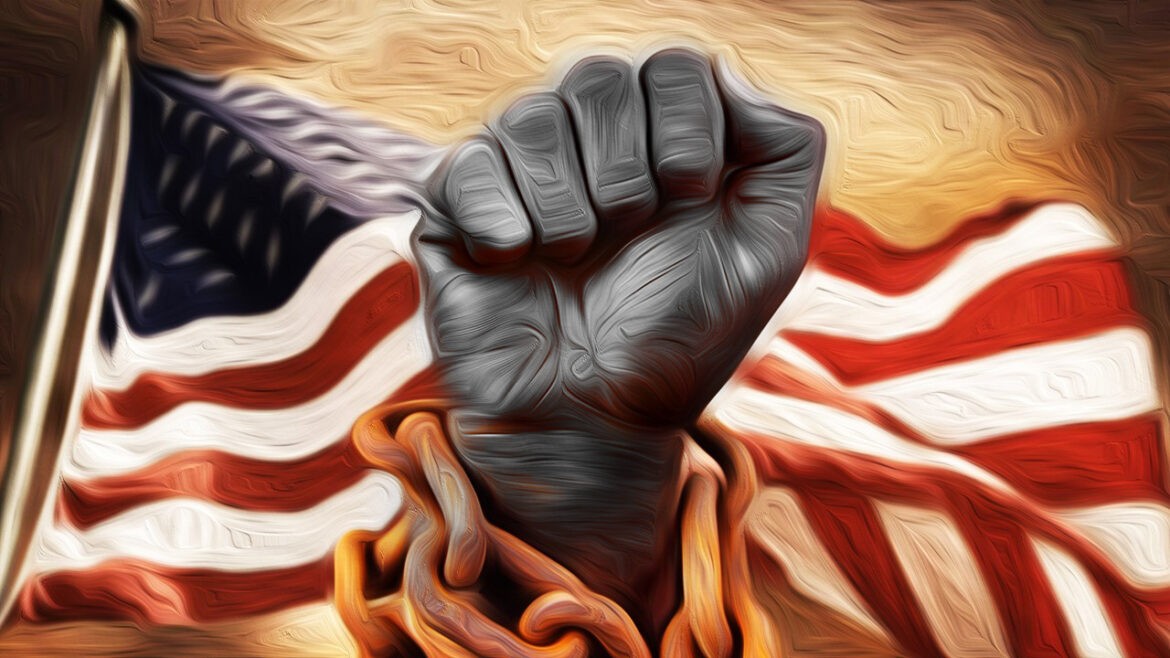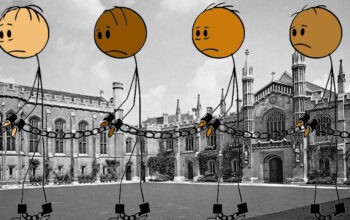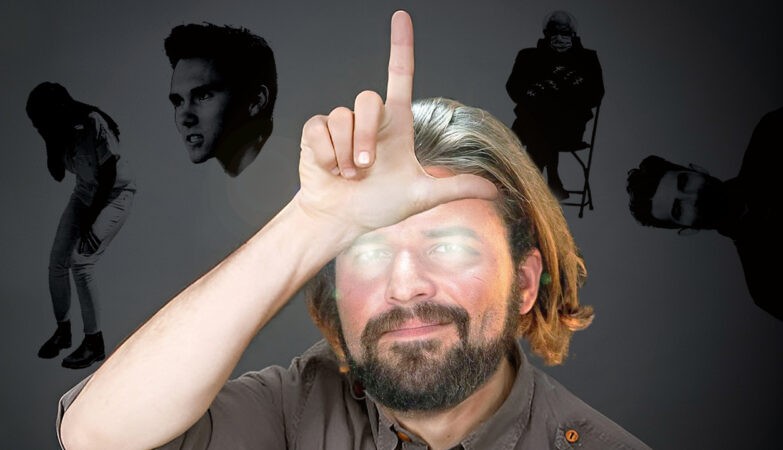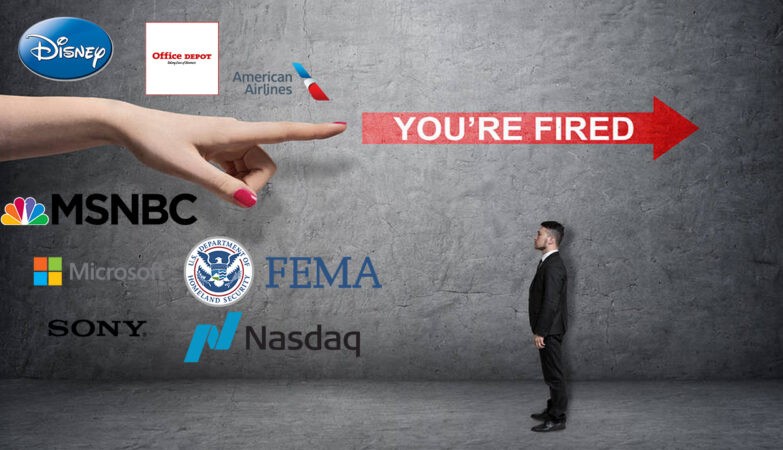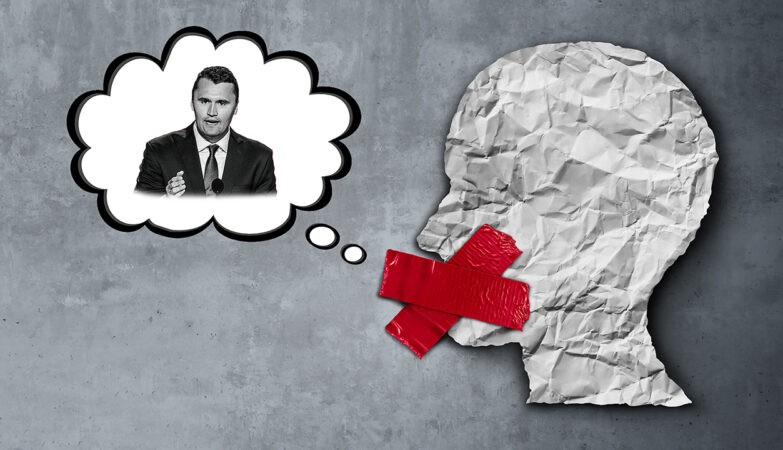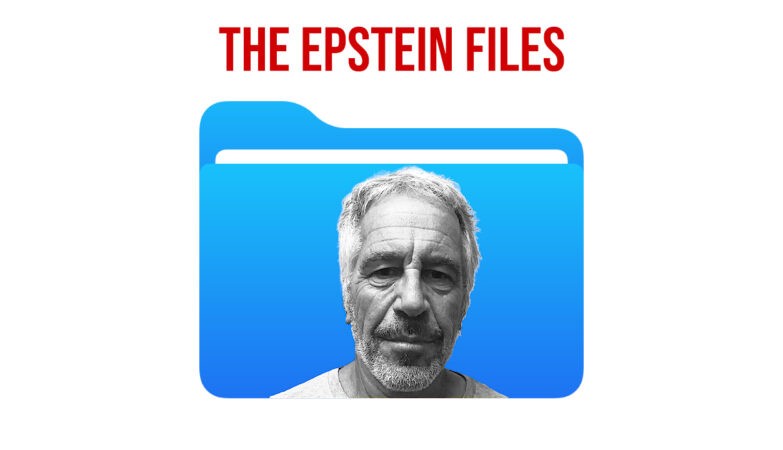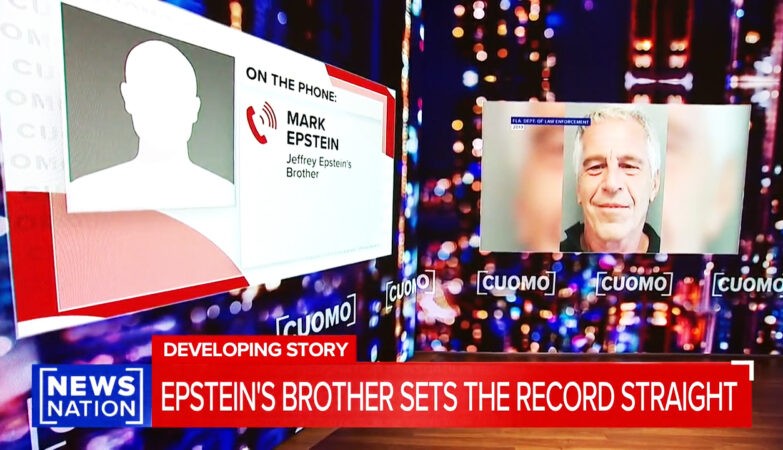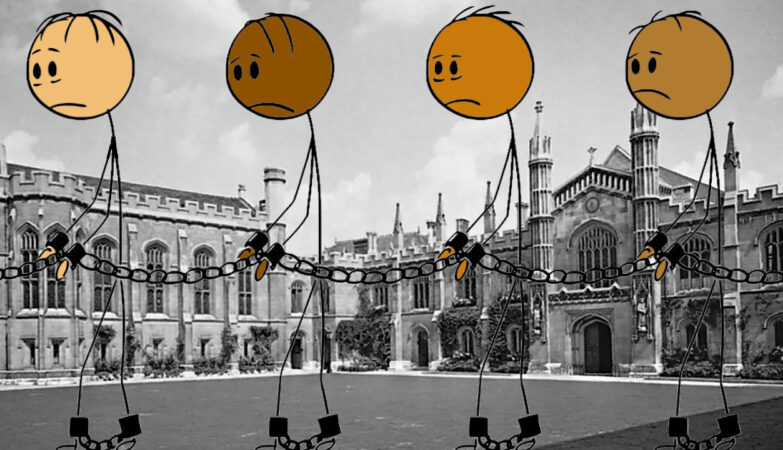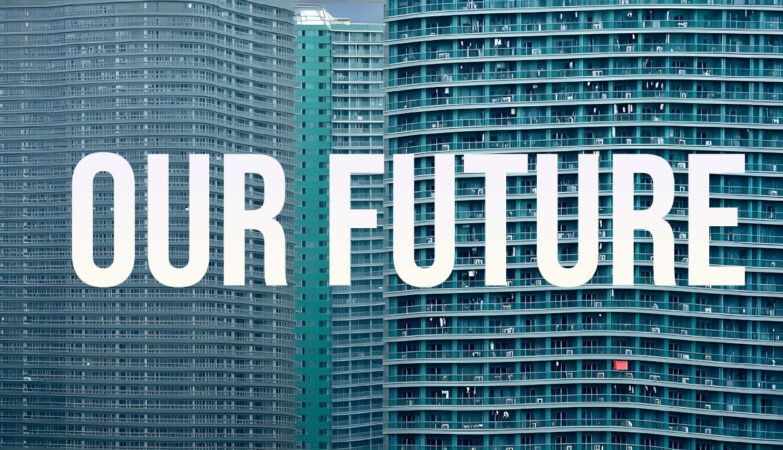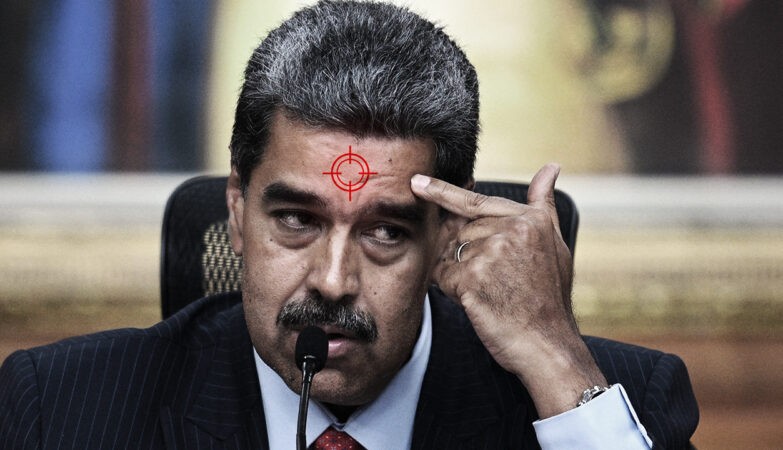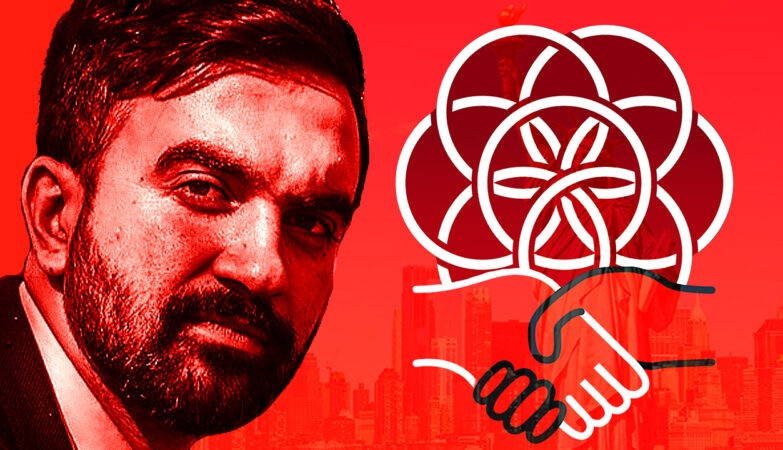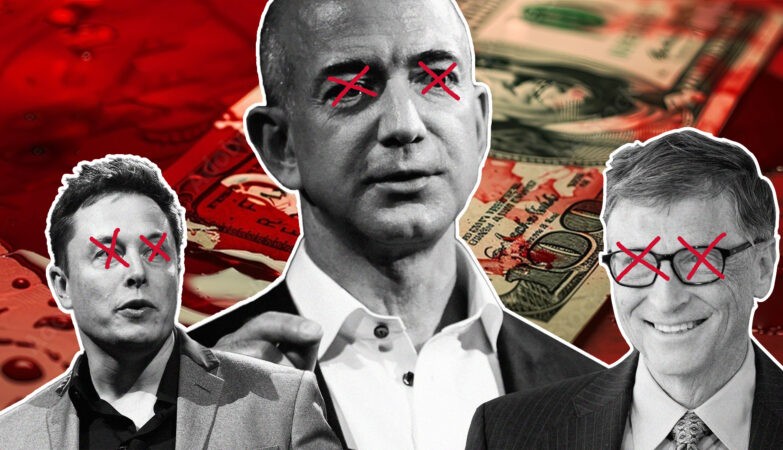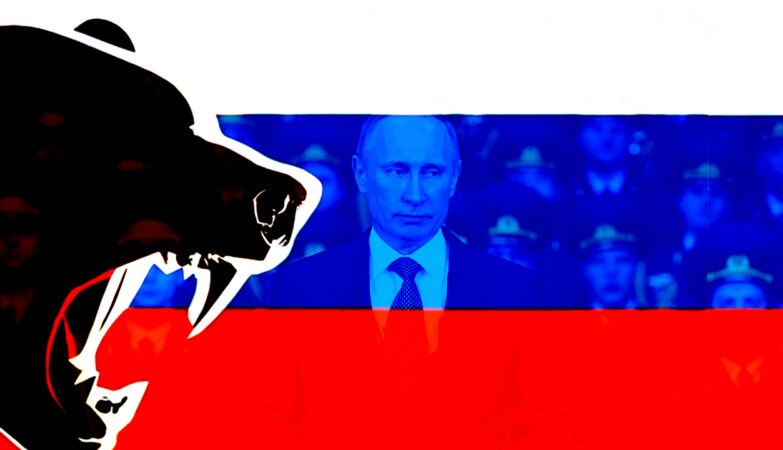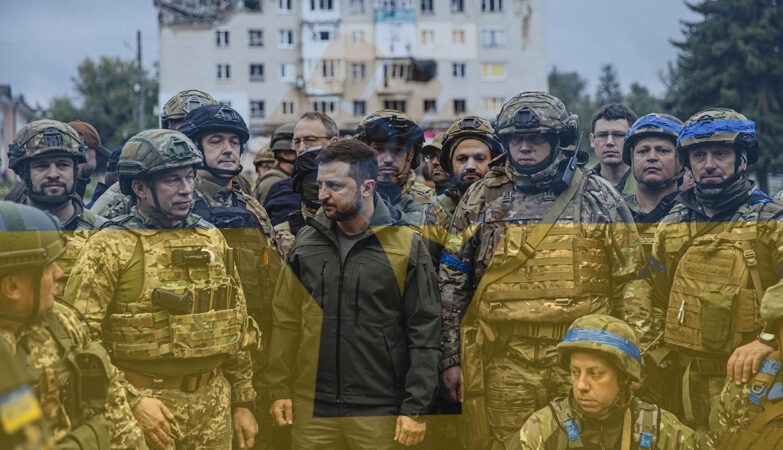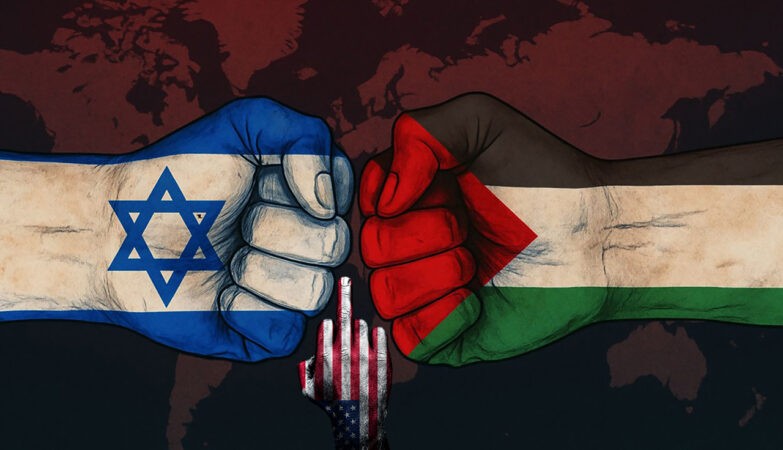Fights are dramatic. There’s no question about that. That’s why most action-based series will inevitably end with a fight. After all, what fun is it if the hero and the big bad resolve their differences with an armistice, a few kind words and a handshake?
Even the most idealistic of all loving heroes will have to beat the evil out of them first before they can save the villain.
For that very reason, whenever the heroes try to resolve their situation through diplomatic or other peaceful means, things will inevitably go wrong. Either it’s a trick by the villains to lure the heroes into an ambush in a vulnerable position, or negotiations will break down and make violence the only option.
Even if by some miracle peace is achieved, it’s only because an even more evil threat forces both sides to ally against it.
The Two Party System Exists as Controlled Opposition
The two party system thrives by giving voters the illusion that they are picking between radically different futures. In reality, both parties are beholden to the same corporate donors, lobbyists, and entrenched power networks.
You can vote for Coke or Pepsi, but you’re never allowed to ask if water should be free, or who Jeffrey Epstein’s customers were.
Each party plays good cop or bad cop depending on who is in power. Republicans run culture wars while gutting regulations. Democrats restore regulations but leave the war machine and Wall Street untouched.
When the other side is in power, the out-party howls in outrage and fundraises off fear, then does very little when it is their turn.
War? Check. Mass surveillance? Check. Corporate bailouts? Check. Police budgets? Check.
On key issues like military spending, capitalism, tech monopolies, and massive corporate subsidies, both parties quietly agree, despite theatrical conflict elsewhere. Gridlock is not a failure of the system. It is a feature. It ensures nothing too radical ever happens.
The filibuster, Senate apportionment, Electoral College, and SCOTUS are all part of a deliberately jammed machine, where accountability is always someone else’s fault.
While the country argues over race, religion, and rather men or women suffer more, both parties enable wealth hoarding, union busting, and environmental decay. Cultural battles serve as pressure valves to absorb public anger without threatening material power.
Republicans limit voting access. Democrats limit gun access. The result is a system where approximately 40 percent of the country regularly abstains, disillusioned by the futility of the choices on offer. Not to represent the people, but to legitimize the system through ritual conflict.
Their job is to absorb and redirect dissent. They ensure systemic critiques (anti-capitalism, abolition, degrowth, individual freedoms, etc.) never enter the mainstream conversation.
The system is not a democracy or a republic. It is a containment field, where each party legitimizes the system by pretending the other is worse.
Voting Never Changes Anything
If you’ve ever wondered why nothing seems to change despite voting for candidates who promise real solutions, you’re not imagining things. There’s actually a sophisticated system neutralizing your vote that most Americans don’t even know exists.
You voted for affordable housing, yet homelessness increased 12% nationally while 32 states passed laws blocking local rent control. You supported healthcare reform, but pharmaceutical companies spent $375 million lobbying to kill drug price negotiations that 83% of voters wanted. You backed infrastructure investment, yet federal projects take 4.5 years on average due to bureaucratic delays while 42% of bridges deteriorate.
This pattern repeats across every major issue: Border security with 2.4 million border encounters overwhelming communities while reform stalls in Congress. Crime policy where violent crime rose 28% but federal policies override local voter preferences. Education where U.S. students dropped from 25th to 36th globally in math while federal rules override local school boards.
A maze of bureaucratic resistance, corporate lobbying, state preemption laws, and federal interference systematically neutralizes elected officials you vote for—making your democratic participation feel meaningless.
Stating that “presidents are selected, not elected” isn’t too farfetched, especially when you are a former president yourself. There are some important points we might want to take a look at when it comes to presidents, elections, and democracy in general.
It’s also relevant to mention here that President Eisenhower warned us about the “military industrial complex,” and the disastrous potential rise of a “misplaced” power that could have great influence globally, and on humanity in general. JFK also warned us about those willing to capitalize on secrecy.
He stated that “there is very grave danger that an announced need for increased security will be seized upon by those anxious to expand its meaning to the very limits of official censorship and concealment.”
“Since I entered politics, I have chiefly had men’s views confided to me privately. Some of the biggest men in the United States, in the field of commerce, and manufacture, are afraid of something. They know that there is a power somewhere so organized, so subtle, so watchful, so interlocked, so complete, so pervasive, that they better not speak above their breath when they speak in condemnation of it.” – Woodrow Wilson
Corporations Are Above The Government
Presidents, politicians, and overall governmental policy is heavily influenced by major corporations, and this reality is not really a secret anymore. A great example is the revolving door between Monsanto and various government agencies, like the FDA. Similarly, there is the example of Barack Obama appointing Michael Taylor, former Monsanto VP, to food safety czar.
We see this type of thing happening throughout history. For example, David W. Beier, former head of Government Affairs for Genentech, Inc., was also chief domestic policy advisor to Al Gore when he was Vice President. Another example is Linda J. Fisher, former Assistant Administrator of the United States Environmental Protection Agency’s Office of Pollution Prevention, Pesticides, and Toxic Substances, also a Vice President of Government and Public Affairs for Monsanto Corporation. The list goes on and on.
Most of this is done through lobbying. There are always lobbyists for GMOs, fracking, nuclear power, bank regulation, and more. This is why we always see government policy favoring the interests of these big corporations, despite being against the interests of the rest of the planet.
I’d also like to mention that corporations are constantly breaking the law, destroying the environment with toxic dumps, dislocating and uprooting people from their homes, and wreaking havoc on the planet. At this moment this degradation is out of control, but we still have a small window of opportunity to change it.
The media is no different. For example, in 2013 Obama signed the Smith-Mundt act which gave the federal government the ability to spread even more propaganda using mainstream news networks. This is the reason news sources like ABC, NBC, CNN, and even Fox often have the exact same article titles or content.
Government Secrecy
How can we live in a a democracy when, according to some historians, the United States alone classifies over 500 millions pages of documents every single year?
“It is ironic that the U.S. would begin a devastating war, allegedly in search of weapons of mass destruction, when the most worrisome developments in this field are occurring in your own backyard. It is ironic that the U.S. should be fighting monstrously expensive wars in Iraq and Afghanistan, allegedly to bring democracy to those two countries, when it itself can no longer claim to be called a democracy; when trillions, and I mean thousands of billions of dollars have been spent on projects about which both Congress and the Commander in Chief have been kept deliberately in the dark.” – Paul Hellyer, Former Canadian Defense Minister
Consider how a researcher might study the official history of their country – how is this even possible when most of that history is kept secret for the sake of ‘national security?’
Scientists working for the Canadian government are starting to raise their voices, accusing the federal government of “muzzling” them and their findings on various issues.
Even inventions and patents are delayed due to secrecy orders. There were over 5,000 inventions under secrecy orders at the end of Fiscal Year 2014, which marked the highest number of secrecy orders in effect since 1994.
History Repeats Itself
Roman Republic (Late Period, ~133–27 BCE)
The U.S. two-party system mirrors the optimates vs. populares dynamic. One side appeals to tradition and elites, the other to the people, but both are run by and for the elite class.
Political theater, not reform, dominates. Just like late Rome, institutions continue to exist as form without function.
“Strongmen” emerge as symptoms of institutional decay (e.g., Trump as Caesar-lite), exploiting disillusionment for personal power.
Similarites:
- Extreme wealth inequality and rampant elite corruption.
- A Senate controlled by aristocratic families (optimates) while populists (populares) claimed to represent “the people” to consolidate their own power.
- Use of mob violence and political spectacle to shut down reformers (e.g., Gracchi brothers).
- Democratic institutions hollowed out while real power shifted to generals and oligarchs (e.g., Caesar, Pompey, Crassus).
Weimar Republic (1919–1933)
U.S. politics often swings between incompetent centrism and rising authoritarianism. Both parties blame the fringes while failing to deliver basic stability.
Corporate and elite institutions may tolerate or enable authoritarian tendencies (e.g., voter suppression, court-packing) as long as their interests are protected.
Mass apathy or extremism thrives when liberalism is seen as ineffective, and radical solutions are suppressed until it is too late.
Similarities:
- Hyper-polarized politics: Communists on one side, ultranationalists on the other, with centrists losing credibility.
- Parliamentary chaos, frequent elections, and ineffective governance.
- Economic crisis (hyperinflation, depression) combined with elite fear of leftist revolution.
- Ultimately, authoritarianism was chosen by elites to preserve the system over democracy.
Managed Democracies (e.g., Postwar Italy, Russia under Putin, 21st-century Hungary)
In the U.S., elections continue, but the range of allowable outcomes is tightly managed by party leadership, donor class, and unelected institutions (courts, intelligence agencies).
Culture wars dominate airwaves while both parties preserve corporate dominance, militarism, and global hegemony.
Institutional checks are mostly theatrical: committees, hearings, ethics investigations that produce no accountability.
Voters are participants in ritual, not decision-makers.
Similarities:
- Electoral systems exist, but real power is concentrated in the executive or a ruling party/alliance.
- Opposition parties function, but are either co-opted, weakened, or allowed to exist only within safe limits.
- Media and political discourse are manipulated to reinforce dominant narratives, often through cultural polarization.
- Citizens can vote, but nothing fundamental changes.
If you fully analyze these three subjects in detail, violence inevitably becomes your only option for progress. When you live in an oppressive society, with built-in systems of control that prevent you from altering that society, and have no way to be successful within the system while staying true to yourself. Your only alternative is to destroy that system.
Authorities push the myth of nonviolence as the only legitimate form of resistance, even as they use violence to punish the nonviolent. In other words, they take everything—your status, your money, your networks, your voice, your citizenship, your moral standing, your high-minded ideals—leaving you with nothing but your own capacity for action: for violence, the one tool the authorities have convinced everyone is theirs alone. For you, they say, it’s off the table.
But it’s not. Violence is a tool like any other. As R.F. Kuang in the movie Babel puts it, “Violence shocks the system. And the system cannot survive the shock.”
Now more than ever, there are systems in need of shocking.
The corporate, educational, and entertainment institutions that score public relationship points by peddling partisan propaganda are similarly largely insulated from the harm that their teachings cause.
How can one blame those like Luigi Mangione, Ryan Wesley Routh, and so many others for taking up arms against the corrupt powers keeping the American people in this vicious cycle? In my opinion, this is just another sign of a deteriorating empire being challenged by the “citizens” it has held down in chains for so long.
“Violence is always the last option, but if that time comes, it is the ONLY option.” – John Gilmour
- https://trenton3983.github.io/posts/illusion-of-opposition/
- https://trenton3983.github.io/posts/ai-governance-manifesto/
- https://web.archive.org/web/20210617002725/https://www.collective-evolution.com/2015/08/28/democracy-doesnt-exist-heres-why-voting-doesnt-change-anything/
- https://www.linkedin.com/pulse/why-your-votes-never-change-anything-constitutional-loophole-mekala-pwnvc
- How Greed Made Piracy Great Again - February 1, 2026
- Why PC Gaming Is No Longer Affordable - February 1, 2026
- Why Student Loans Are a Scam - January 18, 2026

